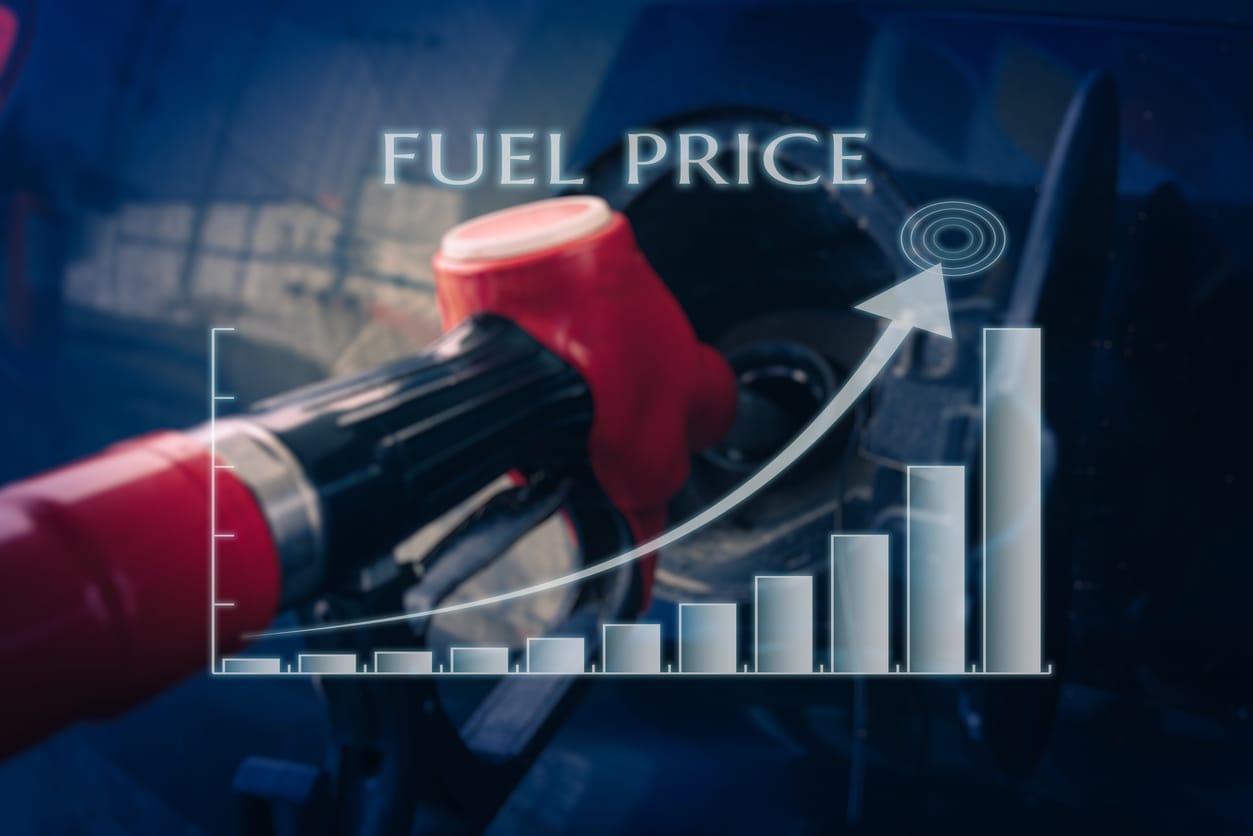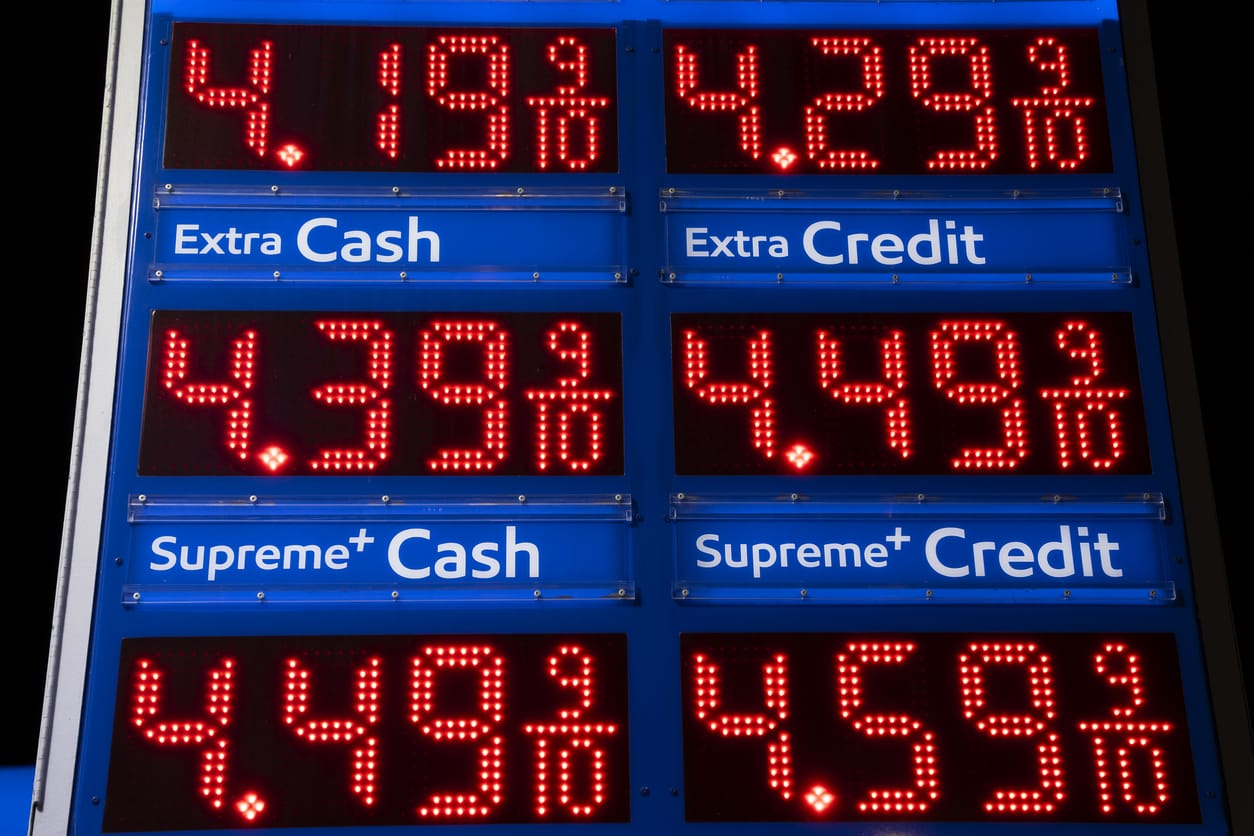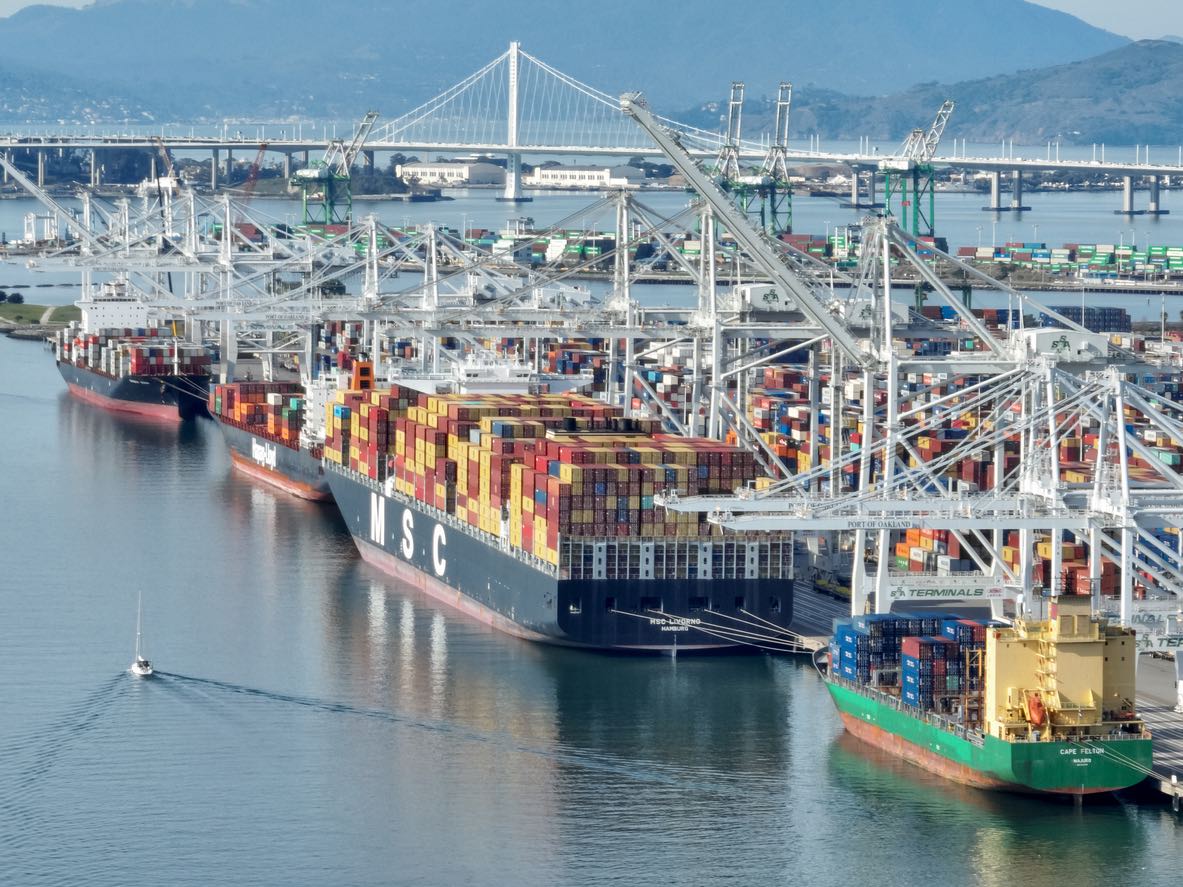The main reason for such a drastic rise in fuel prices is a rise in crude oil prices. Crude prices were up to $62 per barrel in February; the price was just $54 per barrel for much of January.
This has come mostly from a rise in oil demand. COVID-19 vaccination rates are up, which has resulted in a spur of economic activity, which in turn further increases demand for oil. Couple this with supply chain disruptions and limits set by OPEC (the Organization of Petroleum Exporting Countries) and the southern U.S. still reeling from the extreme winter weather in Texas, and you have a recipe for an oil shortage.
And, as we all know, shortages mean price hikes.
Some experts are also blaming the closure of the Keystone XL Pipeline, though others are less certain about its impact on crude prices. However, the storm in Texas has had a much larger impact on the oil supply than people may realize. And then there’s just overall demand from interstate trucks, especially as we get into the spring and summer moving seasons. This in turn bleeds into auto transportation prices, which is really why we’re writing this.
Yes. Diesel is one of the main drivers of car transportation prices. The more diesel costs carriers, the more your shipment is going to cost. This extends far beyond car shipping; any truck transporting any type of good is running their truck on diesel fuel. As such, every single industry that relies on over-the-road trucking to get goods from one location to another will be impacted by the price of diesel.

This is why the price of diesel is so important and why it’s kind of a big deal when prices go up. And there’s lots of demand for diesel, too; if prices go up and demand goes up, prices just go up even more. This ends up having a trickle-down effect; diesel goes up, which means the price to move goods goes up, so the price of goods goes up to offset that. This is seen quite often in gasoline prices, and yet another reason why gas prices tend to go up alongside diesel prices.
Gasoline, of course, shouldn’t affect auto transport prices. But the price of diesel assuredly is going to impact how much you pay.
When diesel prices go up, brokers have to raise their prices to compensate, but there’s a slight issue here: many times, brokers just don’t know what’s going on!
Brokers are important because they connect customers and their vehicle shipping carriers together. Carriers don’t have time to call customers day in and day out and book orders and schedule it all in. That’s why they have brokers; brokers can do most of that leg work and customer service, so carriers can focus on moving vehicles from one location to another.
However, brokers often don’t have time to keep their fingers on the pulse of the industry as much as they would like. This means that many times, minutiae such as the rise in diesel fuel prices goes unnoticed until carriers start letting them know…and they usually let them know by telling them their prices are too low.
Brokers rely on carriers for this, but it’s a fine line because customers don’t like price hikes, especially after they’ve already booked. Enter the conundrum: brokers have to stay on top of prices, but with how often they shift, prices are often volatile on most routes which makes accurate pricing more difficult.
Many brokers nowadays rely on automated pricing tools for the quotes they give. These automated tools take into account a lot of factors that most brokers just don’t have the time to keep up with. This includes changes in supply and demand (such as when unexpected winter weather hits refineries and shuts them down), changes to routes (such as snowbirds becoming more prevalent during the fall), and much more.
Brokers often will field offers from carriers during times of price flux and then present those offers to their customers. Not all do, but it’s a pretty common practice in the industry. Most of the time it’s really not necessary, but some brokers believe it is so they do it anyway.
Carriers don’t mind this practice and they are fairly used to negotiating prices. Many industries that rely on independent truckers have the same kind of system. It allows for flexibility on behalf of the carriers and the brokers while also allowing carriers to control their own destiny a bit more by being able to negotiate prices.

Brokers rely on automatic pricing tools and their knowledge of the industry to weather price flux and keep up with the changing prices, but they’re not perfect. This is why it’s recommended you talk to multiple different companies and find the right prices for what you need.
Even if diesel prices increase, there are still ways for customers such as yourself to save some money when shipping a car, though it can get dicey depending on which direction you decide to go.
The best way is perhaps to just be patient. The most expensive loads always ship before anything posted for less. That’s just the way it goes. If you’re not pressed for time, standby shipping is a great option. It may take a bit longer to ship your vehicle, but it’ll be at a decent price compared to the more exorbitant prices that come during times of flux.
Another way is to ask for discounts. While this may not save you a whole lot of money on your shipment, it could be enough for you to decide on one company over another.

And while we know saving money is important to a lot of people, we do urge customers not to skimp on their car transportation services. If the going rate is a certain price, it’s usually the best move to just pay it. Money moves metal, and a car has a lot of metal in it. Trust your broker and your agent and let them help you get your vehicle shipped.
The Consumer Price Index, a measure of inflation, increased 7.9 percent over the past year, reflecting the largest 12-month increase in 40 years. Experts at Bankrate created a guide that informs readers on everything they should know about inflation. It includes detailed explanations about inflation and what causes it, the current increase in cost of goods and services, ways to protect your money from inflation, and more. Our guide also contains interactive graphs to help readers better understand current statistics about inflation.




